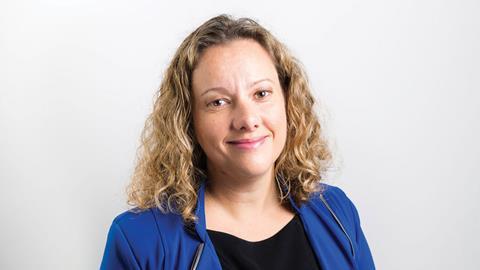Founder of A City Law Firm, London and Croydon
I knew from a very early age – I think as early as eight – that I wanted to be a lawyer. My school books reflected this. My idea of a lawyer was that of a barrister fighting for good in the courts. But, having been part of that, I decided my passion lay with direct contact with clients and leading a case from start to finish.
I worked for three law firms – and the law had become all about the bottom line, and not about looking after the client’s interests. I fell out of love with the reason I wanted to practise law in the first place, which was to help guide people, pioneer for change and to challenge myself. So the choice was either again trying to seek out the right firm, leave law, or do it myself. I took probably the hardest and most challenging path, but I am so pleased I did.
I chose the name A City Law Firm as I wanted a name that stood out on social media and was always number one on lists and at events. I also wanted a name that, when you looked for a firm or walked past our building, made it clear what we did. While some did not like it at first, it has developed its own brand life.
Setting up and managing a law firm is incredibly hard work, stressful, exhausting and scary. But is also the best thing I have ever done. There was limited guidance at the time from the Law Society and not much advice generally on how to become a good business-owner. Hence, I now run numerous sessions based on my own experiences to help support other start-ups and scale-ups.
Aside from being honoured with the Freedom of the City of London, the most amazing and memorable moment in my career was being invited to 10 Downing Street to celebrate the firm being listed as one of the top 100 businesses in the UK. This I will never forget, especially as I was the only law firm. I have also been asked to talk in the House of Commons and I am regularly asked to talk on panels and to the press, which is wonderful as I know I have credibility in my profession.
I get satisfaction when I settle discrimination cases where I feel there has been real injustice. These cases include harassment, sexual orientation or gender issues. Fighting for the victim and beating the larger establishment always fills me with purpose.
One of the issues I am particularly passionate about is addressing and improving the legal rights of the LGBT+ community. I have worked on multiple cases in this sector. These cases have ranged from HIV and sexual orientation discrimination in the workplace and challenging insurers, through addressing transgender harassment and right to change historical documents, to pioneering for alternative families being involved in co-parenting, donor and surrogacy work. We have offered hours of advice and free seminars. To support the community, we also offer a free LGBT+ legal clinic.
We have won a case that changed case law by helping a separated, non-biological intended parent by surrogacy secure full parental rights and shared custody. We are involved in many equality and law-changing cases. This is not just related to LGBT+ issues; we also do a lot of work to promote equality in various sectors, including women in business, women in tech and women seeking investment.
The biggest change I would like to see for the LGBT+ community is a societal shift. This is as important as legal rights and changing laws. While the law develops to offer better rights, such as protection against discrimination or allowing same-sex parents, what it does not do is tackle the reality of people being able to apply the law. There is still so much bullying in schools and the workplace. While there are laws to address this, many people are too scared to raise concerns for fear of losing their job or attracting worse treatment. The UK stands for equality, and yet our diversity and tolerance of other religions and cultures influences the law and courts and can dilute our moral code. I believe the UK needs to maintain and continue to improve its stance on equality.
Our ideal stance for the future of the law would be, despite external influences, maintaining its independence and moral code towards equality. In addition, I would like to see legal regulators working with technology creators and listening to consumers. The law does not currently keep up with technology, or it brings in regulations that are too heavy-handed. This creates short-term cost issues for smaller businesses and long-term limited protection for the sector.
Karen Holden is founder of A City Law Firm, London and Croydon
































1 Reader's comment